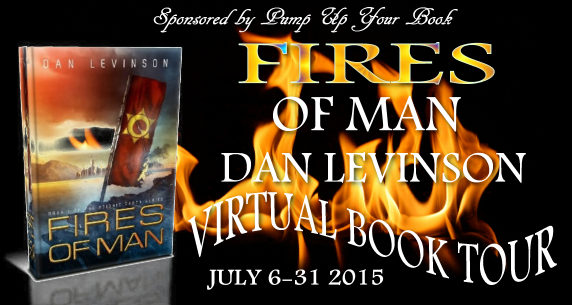Supposedly, the war between Calchis and Orion ended decades ago. But upon reporting to an isolated Orion army base for basic training, Private Stockton Finn learns the war still rages, only the weapons have changed—most disturbingly of all, Finn has been selected to become one of those weapons.
Across the border, young Calchan farm boy Aaron Waverly learns all too well just how determined his country is to win the war when he is abducted from his family's property by a sinister government operative known only as Agent. Trapped in dreary new surroundings, learning deadly skills he's never before imagined, Aaron struggles to reconcile his ephemeral faith with his harsh new reality.
As the two nations hurtle toward a resurgence of open hostilities, Finn and Aaron—along with their powerful new mentors—prepare themselves for the inevitable clash. Meanwhile, Calchan archaeologist Dr. Faith Santia unearths a surprising find in the frozen tundra far to the north, which hints that the brewing conflict may only be the first of their worries...
GUEST POST
The “Why” of Storytelling
Why do we tell stories?
It’s a fundamental question, with many answers: To share our words, our experiences; to achieve a level of recognition, career success, in a field that we love; to channel our own lives—our joys and sadness—into something transmutative and cathartic for our own souls; to, as Aristotle wrote in his Poetics, “through pity and fear [effect] the purgation of these emotions,” thus liberating us to lead a freer and more effective existence.
I feel there’s no greater goal than a “good story well told.” Stories extend far beyond the written word. There are stories in every piece of music, every painting, every film and fascinating movement of the passersby we observe on street corners, in cafés and local stores.
A good story resonates, echoes deep into our subconscious minds, eliciting a human connection beyond what words can convey. Robert Frost wrote, “No tears in the writer, no tears in the reader.” Why is that if we feel what we write, the reader feels it too?
I’ve always ascribed to the philosophies of Carl Jung and his theories of the collective unconscious, and my time both as a consumer of story, and as creator of it, has allowed me to feel its awesome tidal swells. The breadth and depth of the human race itself, the enormity of mankind’s experience, somehow echoes in us all. How else could characters who have never existed on any mortal plane move us so deeply? Bring us to tears, to anger, or make us feel an incomparable sense of hope? How could the very possibility of something that has never in fact occurred make us feel with such powerful conviction?
Story connects us, and I think a good story is a reflection of the most fundamental aspects of human experience: love, and loss; life, and death. It is no less true despite its immaterial nature.
“I like a good story well told,” Mark Twain once said. “That is the reason I am sometimes forced to tell them myself.”
We all tell stories, whether we are writers or not. When we come home from at work, put our feet up, pour a glass of wine, and tell our loved ones about our day, we are storytellers. When we dance to a beautiful piece of music, expressing our inner selves, we are storytellers. When we sing along to the radio, when we draw a picture, when we imagine . . . we are storytellers. For what is storytelling, but the articulation of all that we are, as individuals, and as a collective whole?
We tell stories because they illuminate the human condition. We do not exist in a vacuum. We are all connected. Stories seep down into the deepest layers of what comprise us as human beings. They move us without explanation. Somehow, they penetrate the thick armor we don each day to bear the world’s wicked barbs and prods, and lay us naked and vulnerable, whimpering, quivering, crying in both despair and exultation. They leave us knowing that no matter what hardship we endure, we are not alone. In this vale of tears, we all suffer. But our stories connect us, now, and forever.
We tell stories because they remind us of who we really are, and yet they also provide a conduit to tap into something greater than ourselves. They let us know there is something other than what we can see, or feel with our fingertips. We tell stories because they take us beyond all time, all place, to a realm that knows no mortal ken, that is both impermanent and yet eternal.
We are the stories we tell.
Dan Levinson is a NY-based writer of speculative fiction. Trained as an actor at NYU's Tisch School of Arts, he also writes for the stage and screen. He grew up immersing himself in fantastical worlds, and is thrilled to now create them. In addition to the Psionic Earth series, he is also the author of the upcoming YA fantasy novel The Ace of Kings, first book of The Conjurer's Cycle.



No comments:
Post a Comment